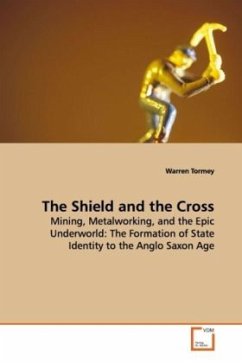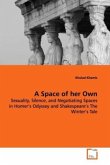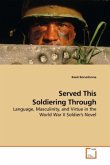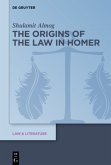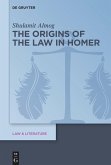As shown in the prophetic visions of the Olympian
smiths, who recorded these the arms and armor donned
by epic heroes, or by the weapons of warfare used by
the heroes of post-imperial Germanic epic, metals
constitute the essential imagistic substance of epic.
Drawn from subterranean recesses which shed light on
the economic realities of the epic poet s world, the
conjoined motifs of metals and the underworld
constitute one important element in the line
connecting Homer and Beowulf. The shield serves as
the most dominant illustration of the symbolic
preeminence of metals within a Classical ethos, as
defined first in the tribalism of Homer and later the
proto-Christian imperialist leanings of Virgil. As
the Classical world view gives way to a
Christianized, pre-Chivalric world view in
post-imperial Western Europe, the sword prefiguring
the Christian cross replaces the shield as the most
telling illustration of the importance of metals and
metalworking in epic literature, as shown
particularly in Beowulf. This study represents an
effort to understand the economic and social
dimensions that are implied in the progress of this
imaginative transformation.
smiths, who recorded these the arms and armor donned
by epic heroes, or by the weapons of warfare used by
the heroes of post-imperial Germanic epic, metals
constitute the essential imagistic substance of epic.
Drawn from subterranean recesses which shed light on
the economic realities of the epic poet s world, the
conjoined motifs of metals and the underworld
constitute one important element in the line
connecting Homer and Beowulf. The shield serves as
the most dominant illustration of the symbolic
preeminence of metals within a Classical ethos, as
defined first in the tribalism of Homer and later the
proto-Christian imperialist leanings of Virgil. As
the Classical world view gives way to a
Christianized, pre-Chivalric world view in
post-imperial Western Europe, the sword prefiguring
the Christian cross replaces the shield as the most
telling illustration of the importance of metals and
metalworking in epic literature, as shown
particularly in Beowulf. This study represents an
effort to understand the economic and social
dimensions that are implied in the progress of this
imaginative transformation.

